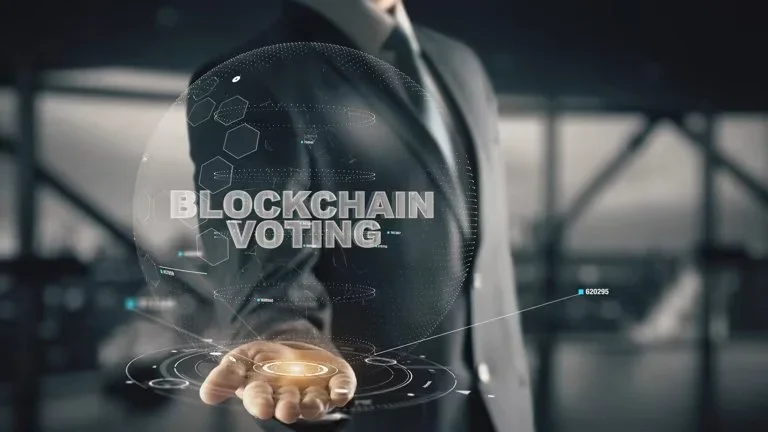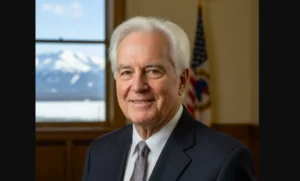Alaska is on the verge of potentially transforming the future of voting in the United States. With the introduction of Senate Bill 39, the state could become the first to adopt a blockchain-based voting system. This cutting-edge technology promises to revolutionize elections by enhancing security, transparency, and accessibility. As the bill progresses through the legislative process, Alaska has the chance to lead the nation in modernizing how citizens cast their votes, ensuring a more secure and inclusive democratic process for all.
A Revolutionary Proposal: Blockchain Voting in Alaska

In 2021, Republican Senator Mike Shower introduced Senate Bill 39, which proposes the integration of blockchain technology into Alaska’s election system. The goal? To enhance election security, reduce fraud, and ensure voter confidence through the secure and transparent nature of blockchain. Blockchain’s ability to record votes in an immutable, decentralized ledger could revolutionize the voting process by preventing tampering or data manipulation.
The technology would allow Alaskans, particularly those in remote areas, to cast their ballots securely from anywhere, potentially increasing voter participation and making elections more accessible. For residents of rural Alaska, where polling stations can be hundreds of miles away, blockchain could be a game-changer.
The Struggles of Accessible Voting in Alaska
While blockchain voting offers many promises, Alaska faces significant challenges in ensuring that all of its residents can participate in elections. The state’s rugged terrain and scattered population of traditional polling places create voting accessibility challenges in Alaska, especially for those with disabilities.
In 2024, the U.S. Department of Justice found that Alaska was not providing adequate accessibility options for voters with disabilities. Polling stations often had physical barriers like steep ramps and inadequate parking, making it hard for people with mobility issues to vote. The department also noted that some voting machines were inoperable or difficult to use.
Could Blockchain Solve Alaska’s Voting Accessibility Problem?
Blockchain technology might offer a solution to these challenges. With its secure, encrypted systems, blockchain could allow people to vote remotely from their homes. This would not only make the voting process more secure but also more accessible for individuals with disabilities or those living in remote villages.
By enabling secure, transparent, and accessible voting, blockchain could ensure that every eligible voter in Alaska has the ability to cast their ballot independently and confidently, regardless of their location or physical limitations.
Alaska’s Potential Role as a Trailblazer in Blockchain Voting
If Senate Bill 39 passes, Alaska would make history as the first state in the U.S. to implement blockchain voting statewide. This could be a pivotal moment in the evolution of American elections, setting a precedent for other states that might follow suit. Blockchain’s promise of secure, remote voting could spark broader discussions on how technology can improve democracy.
However, implementing such a system will not be without its hurdles. Alaska will need to address technical, logistical, and cost-related challenges, and the public will need to be assured of the security and reliability of the new system. But with the right planning and execution, blockchain voting could provide a more secure and inclusive alternative to the current system.
Future of Blockchain Voting in Alaska
In a state as vast and diverse as Alaska, ensuring that every citizen, regardless of their circumstances, can participate in the electoral process is crucial. Blockchain voting represents a step toward more equitable elections, where everyone, especially those in remote areas or with disabilities, can vote securely and without barriers.
If successful, Alaska’s blockchain voting system could serve as a model for other states grappling with similar issues, leading to a nationwide movement toward secure, accessible, and transparent elections.











